Entry Category: Criminal Activities
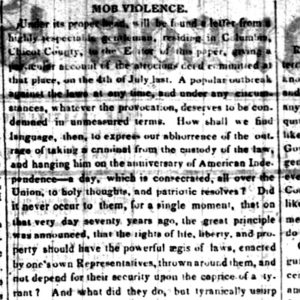 William Lynching Story
William Lynching Story
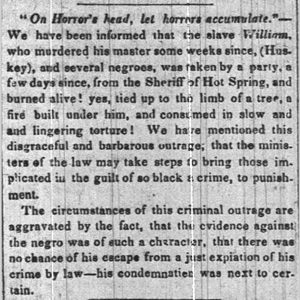 William Lynching Story
William Lynching Story
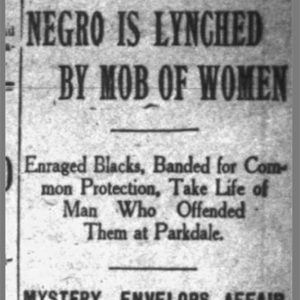 Ernest Williams Lynching Article
Ernest Williams Lynching Article
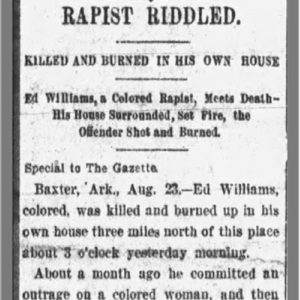 Edward Williams Lynching Article
Edward Williams Lynching Article
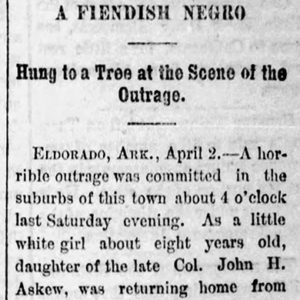 Albert Williams Lynching Article
Albert Williams Lynching Article
Williams, Albert (Lynching of)
Williams, Ernest (Reported Lynching of)
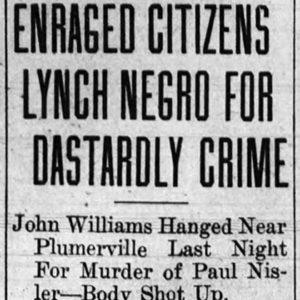 John Williams Lynching Article
John Williams Lynching Article
Williams, John (Lynching of)
Wilson, Alexander (Lynching of)
Wilson, Hog (Lynching of)
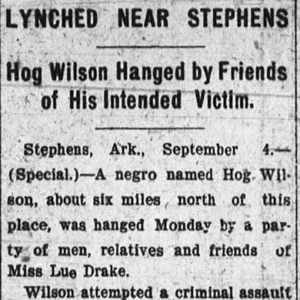 Hog Wilson Lynching Article
Hog Wilson Lynching Article
Wilson, Tom (Lynching of)
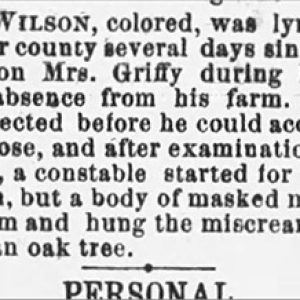 Tom Wilson Lynching Article
Tom Wilson Lynching Article
Woodman, Joe (Lynching of)
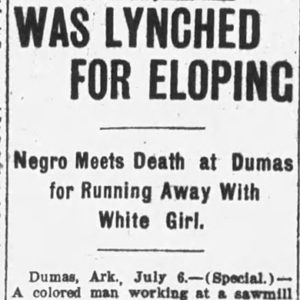 Joe Woodman Lynching Article
Joe Woodman Lynching Article
Woodward, William (Lynching of)
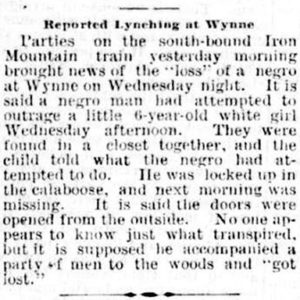 Wynne Lynching Article
Wynne Lynching Article
Wynne Lynching of 1892
Yancey, William (Lynching of)
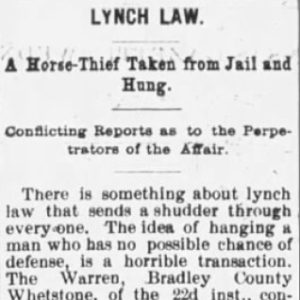 William Yancey Lynching Article
William Yancey Lynching Article
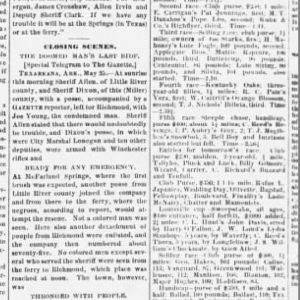 Young Execution Story
Young Execution Story
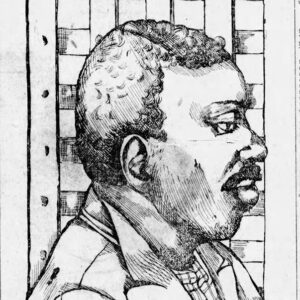 Charles Young
Charles Young
Young, Charles (Lynching of)
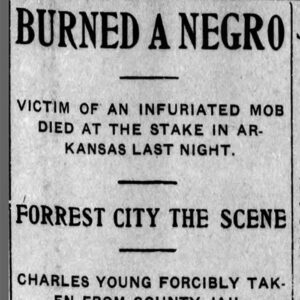 Charles Young Lynching Story
Charles Young Lynching Story




